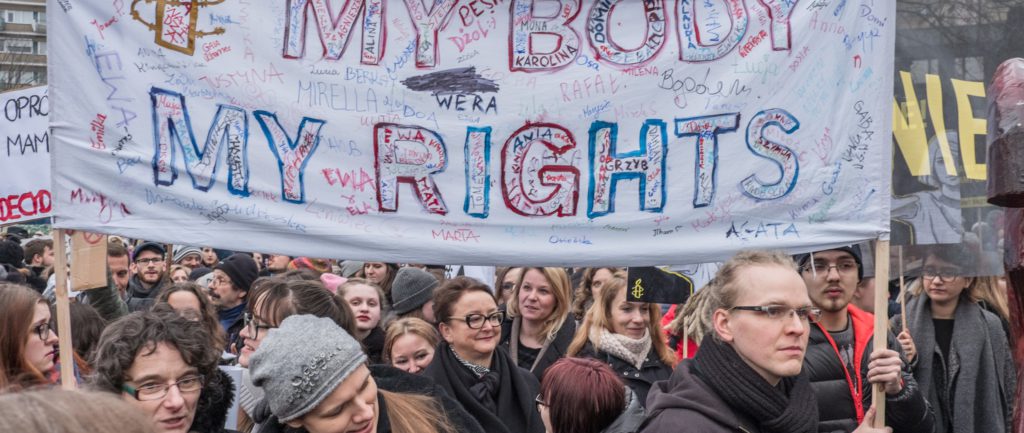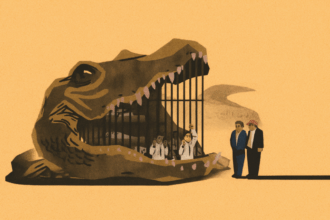European governments must act to ensure equal and universal access to abortion care in the face of ongoing restrictions and intensifying efforts to further limit access to abortion across the region, said Amnesty International in a report published today.
When rights aren’t real for all: The struggle for abortion access in Europe reveals how – despite hard won progress – harmful and dangerous obstacles continue to undermine access to abortion care. This is taking place in the context of increasingly well-resourced anti-rights groups ramping up their efforts to negatively influence policies and laws, often through the spread of fear and disinformation, aimed at further restricting access to abortion.
Hard-won victories on reproductive rights are at serious risk of being reversed by a wave of regressive policies
“The stark reality is that despite significant progress across Europe, abortion access is still restricted by a disturbing array of visible and invisible barriers,” said Amnesty International’s Senior Campaigner on Women’s Rights, Monica Costa Riba.
“Hard-won victories on reproductive rights are at serious risk of being reversed by a wave of regressive policies promoted by the anti-gender movement and championed by populist political actors deploying authoritarian practices.”
While law reforms in many European countries – with some notable exceptions – have made abortion more available, numerous administrative, social and practical barriers preventing universal abortion access remain in place. These include medically unjustified requirements which delay access, conscience-based refusals of care, a shortage of trained professionals, gestational time limits and high costs. Marginalized communities, including people with low incomes, adolescents, people with disabilities, LGBTIQ+ people, sex workers, people seeking asylum or with precarious migration status, are disproportionately affected by these obstacles.
These barriers, combined with various degrees of criminalization, result in further stigmatization, causing delays or even preventing access to essential healthcare. At least 20 countries in the region impose criminal sanctions on pregnant people who have an abortion outside the scope of the law.
Barriers to abortion
In addition to gestational time limits and criminalization, there are several key barriers to accessible abortion.
The cost of accessing abortion can be prohibitive particularly in countries where abortion care on request (when the decision to end a pregnancy rests with the pregnant person) is not included in their health insurance or national health system. This is the case in countries such as Austria, Bulgaria, Croatia, Cyprus, Czech Republic, Germany, Latvia, Montenegro, Romania, Bosnia & Herzegovina, North Macedonia, Kosovo and Serbia.
Several states are failing in their duty to guarantee access to abortion care in contexts of high numbers of conscience-based refusals of services, where healthcare professionals refuse to provide abortions due to personal views or religious beliefs, result in delays or denial of access. In countries such as Italy or Croatia, refusals of this kind are widespread and in Romania they are also on the rise, and in all cases the authorities are not taking the action they are obliged to under international law to mitigate the harms of such high refusal rates and guarantee access to abortion care to those in need.
At least 12 European countries continue to enforce medically unnecessary mandatory waiting periods before accessing a legal abortion and 13 countries enforce compulsory counselling. Albania, Belgium, Germany, Hungary, Latvia and Portugal require both mandatory waiting periods and compulsory counselling. In Hungary, those seeking an abortion are compelled to listen to the foetal heartbeat. In Türkiye, married women over the age of 18 are legally required to obtain spousal consent to terminate a pregnancy within the 10-week limit.
Every year, thousands of pregnant people are forced to travel abroad to seek the healthcare they need due to the difficulties they face in accessing abortion care in their countries.
Attempts to rollback access to abortion
Attempts to rollback of abortion access across Europe are being led by a well-funded, transnational anti-gender movement comprised of conservative and religious groups and institutions, think tanks, civil society organizations and media influencers.
In Croatia, the influence of anti-rights politicians in government, combined with a growing alliance between anti-abortion advocates and the Catholic Church, has led to repeated attempts to impose barriers to abortion access. In Slovakia, there have been repeated attempts in parliament to restrict or ban abortion access, while constitutional amendments passed in September 2025 will significantly erode reproductive rights.
Hungary has introduced new barriers to accessing abortion, contraception and family planning and Italy’s governing party has led legislative initiatives to allow anti-abortion groups and those “supporting motherhood” to access mandatory counselling centres for pregnant people seeking a legal abortion. In these cases, the authorities have justified the measures with arguments including low birth rates or false and racist rhetoric about migrants “replacing” the white “native” population.
Abortion is essential healthcare and a human right
Aggressive and sometimes violent anti-abortion protests and pickets outside sexual and reproductive health clinics have become an increasing barrier to abortion access. In Poland, an abortion centre set up in Warsaw in March 2025 has faced regular harassment and intimidation by groups protesting outside the building. In Austria, abortion healthcare providers face intimidation, including in front of their clinics, while family planning centres in France and centres providing mandatory counselling in Germany have also been attacked by anti-rights groups.
“Abortion is essential healthcare and a human right,” said Monica Costa Riba.
“European governments and institutions must act decisively to bring abortion provision in line with international standards by decriminalizing abortion, eliminating existing access barriers and firmly resisting any moves by anti-rights groups to dangerously block people’s access to safe and timely abortion care, putting lives and health at risk”.”
Background
The report examines 40 counties and draws on Amnesty International’s research over the last decade, as well as data from reliable sources compiled by other human rights and public health organizations, including the Center for Reproductive Rights (CRR)’s publication “Europe Abortion Laws 2025”, the European Parliamentary Forum for Sexual and Reproductive Rights (EPF)’s ‘European Abortion policy Atlas’ and the World Health Organization (WHO) Global Abortion Policies Database. It also draws on insights from 11 abortion rights activists and sexual and reproductive health and rights organizations interviewed between May and September 2025.













